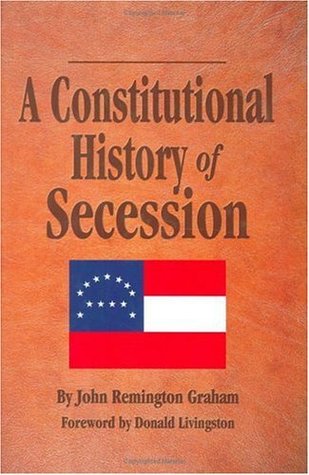Americans have lost the habit of constitutional government. Judges hand down commands derived from their own personal revelation, in the teeth of law and majority rule, and are tamely obeyed by millions. A President, recently sworn to uphold the Constitution of the United States, announces his intention to commit the blood and treasure of the citizens in war against a distant state that has provoked his personal ire or the suspicions of his unelected entourage.
To have lost constitutional government is to have lost self-government. Self-government has apparently come to mean no more than counting up punch-card holes to determine which of two interchangeable celebrities will preside over the immense, unreachable, and unlimited machinery on the Potomac that can take our property and even our lives in a fit of pique or even of absent-mindedness. But note: The Founding Fathers spoke not of throwing the rascals out to make way for another bunch of rascals; they spoke of changing the “form of government.”
Much of the problem results from the inclination of too many Americans to conflate the state apparatus and the people, to fail to distinguish government from society. Thus, people say “New York City is broke,” though the statement does not apply to the place and the people, in all their multifarious life, but only to the passel of politicians who locally monopolize the powers of taxation and legal deadly force. Thus, many Americans seem to regard the President—any president—as a benevolent uncle (the way many Russians viewed Uncle Joe), as a fountain of good will and competence who can do no real wrong and make no serious mistake. After all, we are one big, happy family that plays together.
For the Founding Fathers—or, at least, for the better part of them—the entire point of constitutional government was to provide means for the people to restrain the officeholders. These officeholders were not coterminous with the existing human society but delegates who needed to be kept from overreaching the authority the people had given them. Politicians were, unfortunately, a necessary evil. Like all the rest of us sons and daughters of Adam, they were vessels of vanity, greed, and lust with a perpetual temptation to take advantage of their position. A constitution set limits to help ensure that rulers enhanced society rather than preyed on it.
John Remington Graham has gone back to the origins of our self-government and has found them in the same place the American statesman of independence found them—in England’s Glorious Revolution of 1688-89, with a nod further back to Magna Carta. The society of England changed the form of its government by casting off the legitimate Stuart monarch and establishing a new royal house with the consent, and on the terms, of the society. In Graham’s words, “the occasion was revolutionary, and it was also lawful, peaceable, bloodless, orderly, necessary, beneficial, and glorious.”
On the same principle, the 13 North American colonies changed their form of government by an act of constitution-making by the sovereign people: dissolving their allegiance to the British Crown, creating 13 constitutional republics, and later giving their consent to a mutual agreement in the Constitution of the United States.
Another name for this is secession: the withdrawal of consent from the existing form of government. As Graham puts it:
The right is universal, rooted in natural law and legal tradition—a right of peaceable and lawful revolution. . . . it is a right necessary in extraordinary circumstances for every free and civilized people, whatever their race or culture, wherever their location in the world, whenever they have entered into federal relations with neighboring peoples for mutual advantage. Without it, federal relations are too dangerous to consider. With this right, federal relations can be a great blessing to mankind, and can assure peace and friendship among nations.
Graham brings to the question his considerable knowledge of law and history, a great power of synthesis, and—perhaps most importantly—the experience of his participation in the amicus curiae brief for the judicial proceedings in the Canadian high court on the rights of Quebec. The case of Quebec serves as a model of a society claiming and receiving the right to protect its own peculiar qualities from a central power in control of a potentially hostile majority. Would that Americans had as much allegiance to their own Constitution and tradition.
Unfortunately, we seem more intent on constructing a police state manned by bully-boy federales who regard criticism of “our President” as treason and who are far more adept at murdering dissident citizens than at protecting us from foreign enemies. Nevertheless, there are signs, as in Graham’s work, that some of us are beginning to emulate the Founding Fathers and to think about the legitimacy of forms of government.
[A Constitutional History of Secession, by John Remington Graham (Gretna, LA: Pelican Press) 460 pp., $24.95]

Leave a Reply